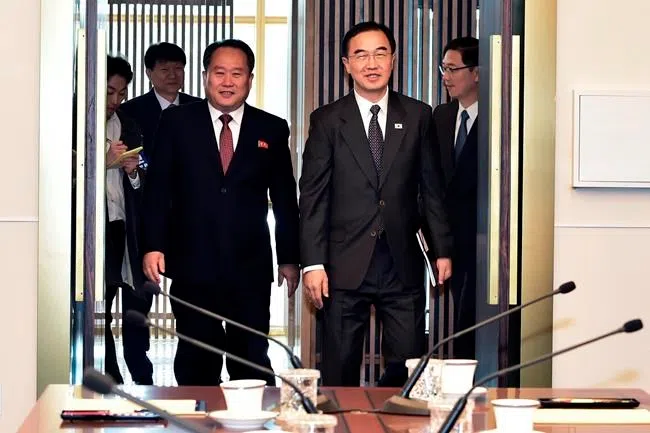
Koreas agree to break ground on inter-Korean railroad
SEOUL, Korea, Republic Of — North and South Korea continued their push for peace Monday with high-level talks that resulted in a host of agreements, including a plan by the rivals for a groundbreaking ceremony this year on an ambitious project to connect their railways and roads.
The agreements come amid unease in Washington over the speed of inter-Korean engagement. Many outsiders believe that U.S.-led efforts to rid North Korea of its nuclear-tipped missiles are lagging significantly behind the Koreas’ efforts to move past decades of bitter rivalry.
There was also controversy over a decision by South Korea’s Unification Ministry to block a North Korean defector-turned-reporter from covering the talks at the border village of Panmunjom over concerns of angering North Korea. This drew a fierce reaction from other journalists, who accused the ministry of infringing media freedoms and discriminating against North Korea-born citizens.
A series of weapons tests by North Korea last year, and an exchange of insults and threats between U.S. President Donald Trump and North Korean leader Kim Jong Un, had many on the Korean Peninsula fearing war. But there has since been a surprising peace initiative, with three inter-Korean summits and a June meeting in Singapore between Trump and Kim. The U.S. and North Korea are working on plans for a second such summit.


